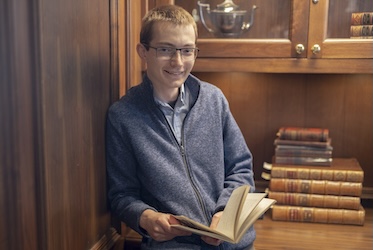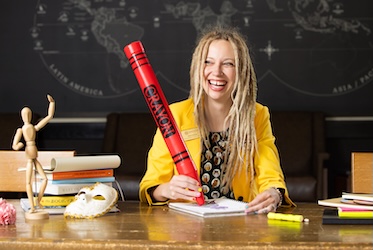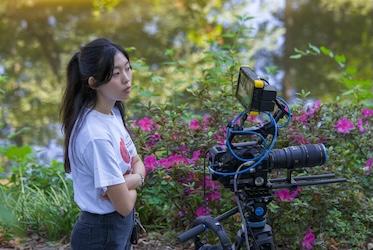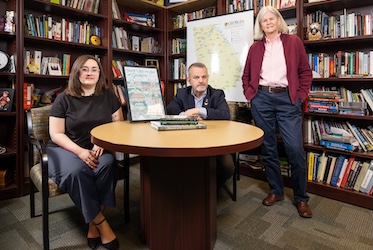
KSU professor promotes resolving conflict with sustainable solutions
KENNESAW, Ga. | Mar 18, 2021

Resolving conflict is not a one-size-fits-all approach and is truly effective only when the process is inclusive and the solution is long-term, according to professor Volker Franke of Kennesaw State University’s School of Conflict Management, Peacebuilding and Development.
Franke applies his research and expertise to address real-world issues, including his current work with 10 communities in Afghanistan to resolve conflicts they’re having related to matters such as education, infrastructure and water usage. Utilizing a sustainable peacebuilding model that he and colleague Eric Wolterstorff developed, Franke attempts to bring together all the relevant parties to discuss the problems, reflect on each other’s perspectives and develop solutions.
“We want to see that they have more empathy for one another, build common understanding and start to discuss ways to solve the conflict that actually could be implemented,” Franke said. “We’re trying to provide the insight and skills for communities to resolve their own conflict in the way they can – not in the way that we tell them to, which is too often where traditional peacebuilding, in my view, falls short.”
Franke’s focus on impactful research extends to his students. He and his fellow faculty members assist master’s and doctoral conflict management students in pursuing research on topics and issues about which they are passionate.
KSU’s Ph.D. in International Conflict Management program has a diverse student body, including international students comprising more than half of it, and Franke said that diversity is reflected in their research pursuits. For example, one student, a retired colonel, assessed the effectiveness of unconventional warfare operations by the U.S. military, such as the Bay of Pigs and the intervention in Syria. Another student traveled to Liberia to study the country’s Palava Hut process toward reconciliation following its civil war. Another student’s dissertation focused on why some people can forgive a certain offense while others cannot.
“It is very important for students to find their passion, to connect their interests with an academic project,” Franke said. “All of them have a reason for entering our Ph.D. program or master’s program, and we ought to listen to what that reason is. I learn just as much as the students do in class because I may talk to them about the different conflict theories or international relations theories, but then they apply those theories to their own experiences.”
To hear more about Franke’s research and expertise, listen to the “Thought Provoking” podcast hosted by KSU’s Norman J. Radow College of Humanities and Social Sciences.
Related Stories

First-year Kennesaw State student, author recognized as versed local historian

Kennesaw State student leverages Double Owl Pathways program to accelerate career path

Kennesaw State student uplifts community through film work, fellowship

Kennesaw State alumni, professor offer guide to Georgia's historic sites in new book
A leader in innovative teaching and learning, Kennesaw State University offers undergraduate, graduate, and doctoral degrees to its more than 47,000 students. Kennesaw State is a member of the University System of Georgia with 11 academic colleges. The university’s vibrant campus culture, diverse population, strong global ties, and entrepreneurial spirit draw students from throughout the country and the world. Kennesaw State is a Carnegie-designated doctoral research institution (R2), placing it among an elite group of only 8 percent of U.S. colleges and universities with an R1 or R2 status. For more information, visit kennesaw.edu.














